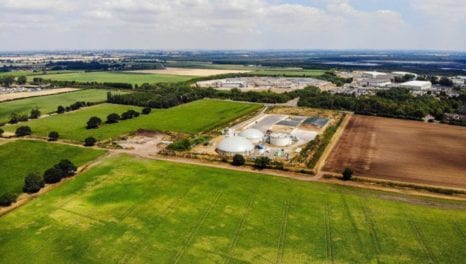Report highlights hydrogen opportunities
Scotland and North East England offer the best opportunities for successful hydrogen production hubs, according to a report from the Policy Exchange's energy team.
20th September 2018 by Networks

The report also states that investment in cost-effective hydrogen production technologies – such as electrolysis – would open up export opportunities and address both the Industrial and Clean Growth strategies.
Fuelling the Future, by Policy Exchange’s Senior Energy and Environment Research Fellow Joshua Burke, recommends that:
- The hydrogen economy offers big opportunities to decarbonise, but without coordinated leadership from industry and central government (targeted at lowering the cost of sustainable production) we will not benefit as we should.
- As part of the Industrial Strategy Challenge Fund, investment should be focused on R&D to lower the cost of hydrogen production via methods like electrolysis, which has the potential to provide flexible services to help balance intermittent renewable energy.
- In the short term, long distance freight offers the best opportunities for implementing hydrogen use at scale, and national and local government should work with the private sector to invest in the necessary refuelling network as well as innovation grants for pilot programmes.
- Hydrogen production using electrolysers and ‘spare’ curtailed wind can replace less than 1% of the gas used in domestic heating, while production using fossil fuels is incompatible with domestic decarbonisation targets without carbon capture and storage (CCS). Scotland and the North East of England are the best places in the country for decarbonised hydrogen production hubs using renewable energy and/or CCS so the Government should consider targeting investment there.
Lead author Joshua Burke said: “The versatility of hydrogen offers big opportunities to help overcome some of the challenges the UK faces when transitioning to a low carbon economy – but we are far from realising them yet. Two issues need addressing. Firstly, we need to focus on getting cost-effective, scalable and sustainable production methods to reach mass market. Targeting investment towards reducing the high cost of producing large volumes of low carbon hydrogen is crucial. Secondly, we must decide the most appropriate applications of hydrogen within our economy, given potential uses are likely to be highly interconnected and this will have implications for the energy system.
“Challenges to decarbonising the domestic heating remain. If hydrogen was to fully replace natural gas by 2050, from 2030 installed hydrogen capacity would have to grow at a rate 3 times as fast as the wind sector, and do so consistently for 20 years. As there is no silver bullet, decarbonising hard to reach sectors will need a nuanced approach, with an understanding that no one measure will suit every area. For example, we might see a hydrogen transport hub in the North East, heat pumps in rural off-grid areas and district heating networks in areas that are heat dense and where CHP plants are being developed.”
Mike Foster, Energy and Utilities Alliance (EUA) chief executive, said: “I am pleased to see the debate on hydrogen taken to another level, and our members are actively working on hydrogen appliances and solutions to demonstrate that it can be distributed in the UK distribution network safely.
“However, urgent industry and government action is required to make this a reality. This report helps to outline the opportunities for hydrogen but also some of the key hurdles that industry and government need to overcome. We look forward to working with all our partners over the coming years to transforming the theory on hydrogen into a low carbon reality.”
The Policy Exchange report: “Fuelling the Future” can be viewed here.
Comments
Login on register to comment
Related content

Gas
Cadent backs launch of major bio-CNG HGV refuelling station
Gas network’s £250,000 infrastructure investment ensures supplies to existing connected customers have not been impacted

Gas
Editor’s blog: The biggest tests of resilience are yet to come
Network content director Jane Gray reflects on the industry's coronavirus response to date and the challenges still to come.

Gas
From the front line: Chris Garside and Andy Simcoe, Northern Gas Networks
Key workers across the power and gas networks are playing a critical role in the national response to Coronavirus. Network has committed to profiling their stories.
Related supplier content

Power
Load patterns and lockdown: how Covid-19 is impacting electricity networks
Insights into dynamics on the low voltage network as the outbreak unfolds

Downloads
Protect electrical equipment from insulation failure
Insulation faults are a major cause leading to the eventual failure of electrical equipment. Partial discharge (PD) is a very reliable indicator of developing insulation faults. Regular PD testing allows users to detect and analyze PD activity

Heat
How E.ON. is helping the City of London become a zero emissions city
Discover Citigen. Deep in the heart of our bustling capital